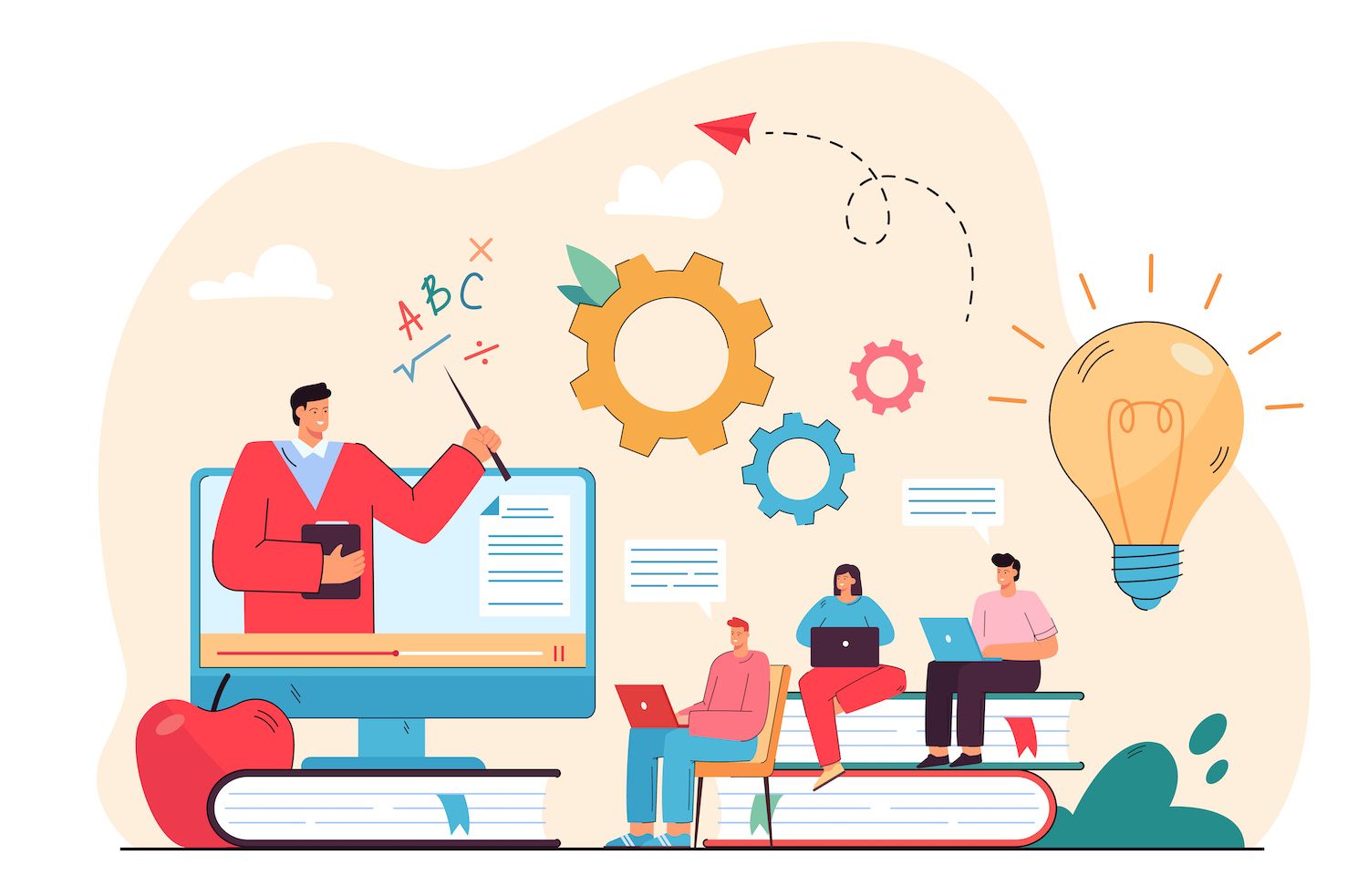Terms

"I was born and raised in Southern Vermont," starts Max Mackson of Maximilian Mackson, LLC. I attended homeschool through high school. This allowed me to work on my computer. I learned HTML, CSS, and JavaScript, the languages of the web, and kept experimenting with other initiatives."
When he was a teenager, Max entered a play program. "I learned how to conduct myself professionally; we had a demanding director and I'm glad we did since he taught me how to be punctual and ensure that you're prepared," he adds. Max's first IT job happened around this time. "Between my sophomore and junior year at high school, I worked at a country club in the town. I was there twice a week updating their website and it was God horrible! They were using some crazy third-party software; it took half an time to accomplish tasks which using WordPress would have taken only two minutes." He says.
Meeting people face-to-face when fixing the tech certainly helped He continues. "I'm all about personal connection. I get a lot worth out of friendships. In the summer in the club the club was at full speed every day. Therefore, if the printer at the kitchen went down and I needed to get through the room. It was hot and bustling with everyone running about me. It was like we were "in the zone" in the moment!"
Max was fascinated by seeing his effects from what he was doing in attempting to overcome the stressful relationship that we share with tech sometimes. "When I worked with others who were working with me, I would tell them 'Okay, I just pushed an update to this computer And I'd get to determine if it was helpful to them, or if they were confused. I could see these different sides and learn what people's reactions to technology are. Most IT individuals will declare, "Okay, that is the way things are now; this is an update' and I find that irritating. I love working with other people."
Max discovered that having a good grasp in technology could make a difference to the lives of people. At the time of his country club days when he was a teenager, his resentment for printers started "They just never seem to perform when you need them to work!" he smiles. Much of his time was spent repairing printing equipment; and working with computers taught him a lot about system architecture "I eventually had to rework each of their systems throughout time. I still do the work they do now," he adds.
Striking out all by himself
For a formal education, Max went to Champlain College located in the northern part of Vermont but learned something other beyond the standard curriculum. "I was one of a dozen information technology majors, which is really funny when you consider that while I was at school it was decided by the school that they were planning to end that specialization! They took us to an area and told us, 'Hey, guys, so you're still going to have the option of graduating. However, we won't provide your degree after this year'!"
Max was able to enter the field of audio-visual due to his experience in the theater. "That involved more fixing technology since all classrooms relied upon an electronic computer, projector and projection screen," Max says. "When things went wrong and we walked into these full classrooms with students and everybody would look at us. We'd stand on a table and change out a lamp for the projector!"
"I attended college for just two years. I dropped out because I was finding it slow. The web world moves at such a rapid pace that by the time you end with a degree and it's outdated in the real world. For the professors having to study and push this knowledge to the students, it's some time," Max adds.
Of course, the pace of technological advancement hasn't stopped and in fact, has increased and the speed and purpose of higher education eventually caused Max to starting the company he owns. One reason that he quit was due to the fact that his outlook for the future didn't match that of his college: "They liked to say that they had 99percent of their students employed immediately after graduation - which is fantastic, however, they are extremely focused on making sure that everybody gets into the working environment. I love working with others, but not in that way; it was not for me."
Then Max decided to go on his own and started searching for his first client. Max had recently attended a webinar and the man conducting it was looking for reviews. Max recalls: "I sent one in hoping to practice my skills in copywriting, however, in the end, I put 'PS - If my abilities could ever be of use to you, let me know'. he replied, 'Well, what can you do?'"
Max went through the website and wrote up a bulleted list of improvements: "No BS, just straight to the point" and Max got a quick response: "Text me" and a phone number. "That was how I got that particular gig. He's still a good client!" Max smiles.
Projects and services
"You are surrounded by all the different pieces of software that power your business, but all of them aren't communicating with each other. I'm the guy who gets the software to talk flawlessly," Max says. Max explains how this results in one more robust system that is able to accelerate business growth while reducing time and energy. "I consider myself to be an integrator and systems architect. Most people like my parents refer to me as"the IT man!" he jokes.
Max says the typical client's technology stack may have 100 pieces of software, all in separate silos. "You need to bring everything together in order that they speak to each other. I first started working with handful of customers on Web design, then I began to focus on integration in April 2021, as one of my clients was looking to establish a member-paying exclusive community."
Max was working with that client, an evangelist and health influencer for some time and it was going well. Max had no prior experience with membership but he already anecdotally knew what the pain points that were going to be. "I ended up researching a bunch of membership software providers. There is a way for me to go about conducting research, where I go through different lists of what's the best software, and I'll compare them."
Max picks software to provide an optimal user experience both from an admin side as well as a user's perspective, so that customer support is less time-consuming in the long run. The simplicity of the software is vital. "I can operate in a more intricate setting, but I can also see that when something reaches the level where it's no longer useful for everyday people. People want to buy something, and they want to get access to it. This is a common scenario: when someone would sign into the website, I'd be aware of the reaction at their face. I would start to explain what they were doing and their eyes be glazed over!"
Styles of integration and the future
"Integrations may appear to be complicated," Max muses. "They come in different forms and different depths. So for a native integration similar to Mailchimp, just click a couple of buttons, it's authorized, and you're good to go. There are no-code and low-code integrations like Zapier's Zaps. There are also completely custom ground-up integrations where you create everything from the ground up."
"Generally I am in the no- to low-code sphere, because it is generally effective for my clients. For one integration, my client wanted to get very in-depth with it. They desired to incorporate the features of native integration but through Zapier. I had to use a dozen Zaps to get the whole setup wired up, and also to achieve a natural feel however I needed to create some code that was custom."
The thing that made this particular venture fascinating was the number of people who participated. "The initial day that we started it, we put 50,000 tasks through that was incredible! It had to be optimized a lot for it to be worth the cost. I managed to get it down to an average of less than 5000 tasks a day. That's pretty ambitious."
He continues: "That was the first occasion I worked with a customer of that scale with Zapier. I've worked on a bunch of different projects, some that were more design-oriented, others with more technical aspects, but this one stood out."
The larger scope of development seems to be driving Max's future. Max says that: "Longer term, I intend to design software specifically that is designed for businesses." Max adds his thoughts on software are often because it's an important aspect of his career and because so many programs have become worse over the years. "It is becoming bloated and slow and isn't user-friendly anymore. It's constantly releasing UI upgrades that increase the difficulty. In the present many people expect software to suck!"
He explains that he wants to provide a more pleasant simple, user-friendly experience for users. "It's still in the design stages but I have some interesting concepts. The project is likely to be at least six months out as I usually be a solo worker most of the time. I don't like working with an agency: they hand the project over to a unfamiliar developer that is then locked up inside a closet! I'm not happy in that type of setting and I tend to collaborate with individuals one on one."
Max shares his latest thoughts and offers preferential treatment to subscribers of his list (which is affectionately referred to as the "#MilianFam"). And as an exclusive offer for new subscribers who join from the list, Max has designed an extra bonus program that, at the date of post, hasn't offered anywhere else, at any price.
